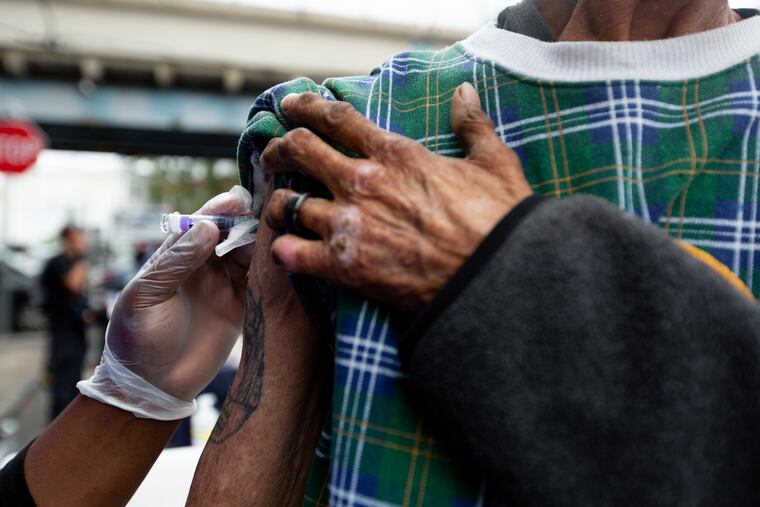Hepatitis A case confirmed at Kensington doughnut shop
Since January, Philadelphia has been battling a hepatitis A outbreak that sickened 154 people by August and led officials to declare a health emergency.

Philadelphia health officials have confirmed that an employee at a doughnut shop in Kensington has been diagnosed with hepatitis A and are recommending that anyone who purchased food there get vaccinated against the liver disease.
The person worked at Yumcious Donuts at 3001 Kensington Ave., officials said. Anyone who bought doughnuts there or at a Quick Stop at the same address between Aug. 20 and Sept. 4 should get vaccinated “as soon as possible,” Philadelphia’s health department said in a statement.
Typically, Philadelphia sees about two to six cases of hepatitis A a year, but since January, the city has been battling an outbreak that sickened 154 people by August and led officials to declare a health emergency. The disease is caused by a virus that spreads through oral contact with infected feces — usually after a person has consumed contaminated food or water.
It can spread when food workers do not adequately wash their hands after using the bathroom and before handling food. While most cases resolve without treatment, the infection can be dangerous for seniors and those who are medically fragile or already have liver disease. People who inject drugs or who are experiencing homelessness are also particularly vulnerable to hepatitis A; many of this year’s cases were reported in Kensington, the epicenter of the city’s opioid epidemic.
The city began vaccinating hundreds in the neighborhood this summer and was offering hepatitis A vaccines at McPherson Square on Tuesday. It will do the same on Sept. 24 in the park from 10 a.m. to 2 p.m. More than one shot is needed for patients “to get the full benefit” of the vaccine, the health department said.
“Practicing good hand hygiene – including thoroughly washing hands after using the bathroom, changing diapers, and before preparing or eating food – plays an important role in preventing the spread of Hepatitis A,” the department said.
Besides the vaccines being given out in McPherson Square Park, the health department has an online list of pharmacies with hepatitis A vaccines. Philadelphians can also call the health department at 215-685-6741,q Monday through Friday, between 8:30 a.m. and 5 p.m., if they need help getting vaccinated.